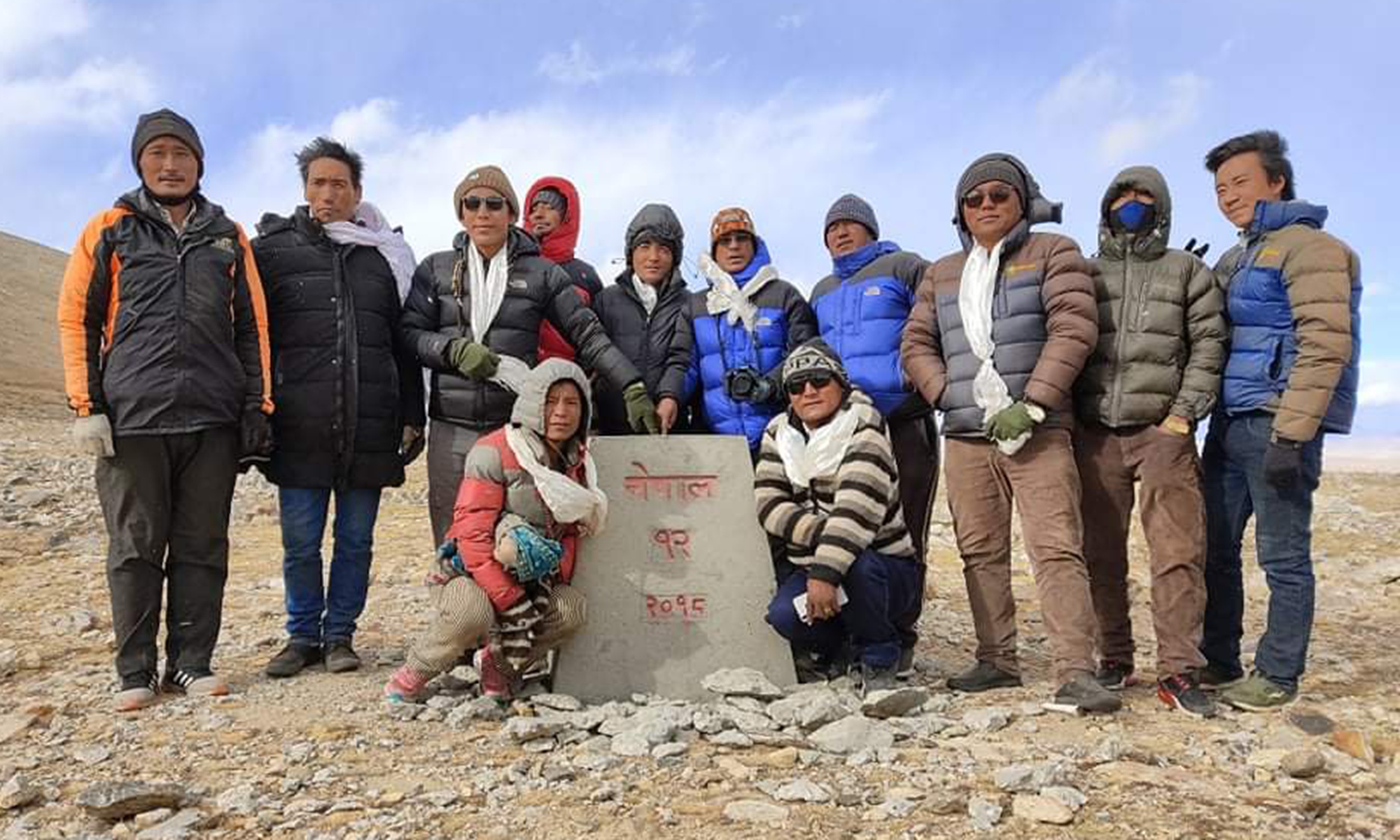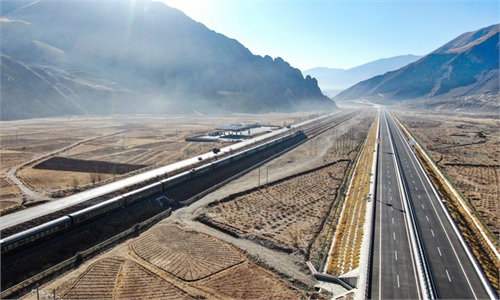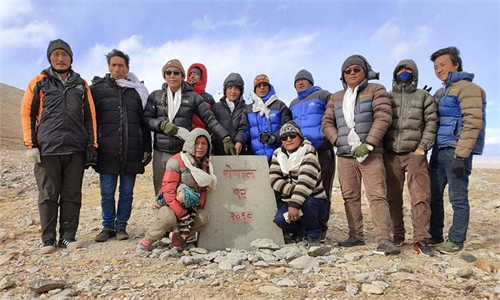
Karchen Lama (fifth from right) and his team visit the No.12 pillar at the China-Nepal border on November 4. Photo: Courtesy of Karchen Lama
The BBC recently hyped the baseless claim of China encroaching on Nepal's territory, which has been repeatedly denied by both countries, with observers saying the BBC's report is part of a smear campaign against China amid applause for the Beijing Winter Olympics.
On Tuesday, a news report by BBC claimed that "a Nepalese government report leaked to the BBC accuses China of encroaching into Nepal along the two countries' shared border" in the district of Humla, in the far west of Nepal.
However, the Global Times found that the claims had been raised since 2020, and have been repeatedly refuted by the Nepali Ministry of Agriculture, Ministry of Foreign Affairs and Chinese Foreign Ministry.
A Nepalese investigator who visited the border in 2020 confirmed to the Global Times that the so-called "encroaching" in Humla is baseless, and the border pillars were not moved, after Western reports said the Chinese military moved the stone pillars used to demarcate the boundary into Nepalese territory for China to construct military bases.
The Global Times learned from insiders on Wednesday that the Nepal Home Affairs Ministry sent a government inspection team again last September following a new round of accusations by some local anti-China, pro-India political forces alleging China for encroaching into Nepali territory.
The inspection team then submitted a report to the Home Affairs Ministry.
"This report cannot represent the official position of Nepal," Zhang Yongpan, a research fellow of the Institute of Chinese Borderland Studies under the Chinese Academy of Social Sciences, told the Global Times, adding that the so-called "leak" was likely intentional.
The BBC also highlighted an "accusation" from the report which said that China "was building a fence around a border pillar."
Alluding to China's control of the border with Nepal, the BBC report said that the border area of China's Xizang has seen many people fleeing from "what they see as Beijing's repression."
"Infrastructure and living standards in Xizang's border areas have improved so much that few people are willing to risk illegal crossings to India or Nepal. The border control is neither in an atmosphere of tension. Border facilities on both sides are more a sign of sovereignty. People on the two sides of the border conduct friendly exchanges and trade," Zhang said.
"The BBC raised the issue again at the time of the Winter Olympics, raising suspicions that its motives match 'Tibetan independence' secession forces advocating a boycott of the Winter Olympics," Zhang said.
"BBC reported the same type of news in the past. Nepal has territorial disputes with India, but it doesn't write about it much because it does not fit BBC's anti-China narrative," Shristi Kafle, a Kathmandu-based independent journalist, told the Global Times.
"The border encroachment issue with China often surfaces whenever other issues are debated in Nepal. For instance in the past, when the border encroachment by India was raised, it was later followed by a Nepal-China border issue," she said. "Unless there is verification from the government side, there is room for doubts and suspicions. Both national and global media should be responsible with any report on sensitive bilateral matters rather than create a false narrative."



